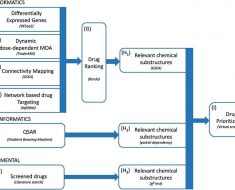Dr Amir says big toe can reveal diabetes and heart disease
Type 2 diabetes is more common in people over the age of 40, those who have a close relative with the condition, and those who are obese.
It’s a condition that causes the level of sugar (glucose) in the blood to become too high, and left it treated it can lead to serious health consequences.
GP Dr Steve Laitner said common symptoms include feeling thirsty, drinking a lot and peeing a lot, especially at night.
There are, however, “less common” symptoms of high blood sugar you need to be aware of.
Dr Laitner said: “Less common symptoms include feeling tired, losing weight, poor wound healing, recurrent or prolonged infections such as thrush and boils.
READ MORE Doctor recommends three plant foods to lower type 2 diabetes risk

“Sometimes blurred vision or pins and needles or numbness, especially in the feet, can occur.”
The doctor stated: “Diabetes can be associated with high blood pressure, heart disease and kidney disease.”
He elaborated: “Many people who develop diabetes have other long-term conditions too.
“Recognising symptoms of diabetes can be even more difficult when you are struggling with other chronic diseases.”
Don’t miss…
The first symptom of testicular cancer that can appear for some men[SYMPTOMS]
The fruit shown to improve heart and brain health – just two servings a day[STUDY]
France travel warning – tourists to be wary after outbreak of deadly infection[LATEST]

We use your sign-up to provide content in ways you’ve consented to and to improve our understanding of you. This may include adverts from us and 3rd parties based on our understanding. You can unsubscribe at any time. More info
This is why it’s crucial to understand what is normal for you so that you can report anything out of the ordinary to a medical professional.
“Understanding what is ‘normal for you’ can help you spot changes to your health and wellbeing more easily,” emphasised Dr Laitner.
“Make sure you don’t miss those important clinical reviews and monitoring which are essential to spot deterioration or development of new conditions.”
The NHS provides a free Health Check for those between the ages of 40 to 74.
Not only can the health check determine if you have diabetes, it can also pick up on early signs of kidney disease, heart disease and dementia.
People who are eligible for the NHS Health Check will be invited for a check-up every five years and, sometimes, more frequently.
Dr Laitner said: “It is important to get tested if you have symptoms or risk factors or an associated condition.”
Dr Steve Laitner is the Head of Population Health at Aide Health, a platform dedicated to helping people with long-term health conditions, such as diabetes, to better manage their health.
Source: Read Full Article





